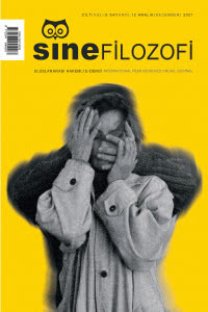Douglas Sirk Sinemasında Moral Ökült ve Maniheizm
Melodramatik modu oluşturan en önemli kavramlar Moral Ökült ve Maniheizm’dir. Moral Ökült kavramı geleneklerin nesillerden nesillere tekrarı ile dönüştüğü ahlaki normlar, Maniheizm kavramı ise adını aldığı inancı oluşturan birçok dinsel pratiğin üzerine kuruludur. Melodramatik modun yer aldığı sinema eserleri evrenselleşmiş olup seyirciden yıllardır büyük ilgi görmektedir. Bu ilginin ardında ilkel toplum zihniyeti ile Moral Ökült ve Maniheizm kavramları arasındaki bağlantı yatmaktadır.
Douglas Sirk filmleri melodramatik modun sinema alanındaki temsilcileridir. Yönetmenin 1950’li yıllara damga vuran Magnificent Obsession (Mukaddes Azap, Douglas Sirk, 1954), All That Heaven Allows (Her Şey Senin İçin, Douglas Sirk, 1955), Written on the Wind (Aşk Rüzgarları, Douglas Sirk, 1956), Imitation of Life (Zehirli Hayat, Douglas Sirk, 1959) adlı filmleri Moral Ökült ve Maniheist temalarıyla öne çıkmaktadır. Bu çalışmanın amacı ilkel toplumların geleneklerinin sürekliliği ile ortaya çıkan ahlak kurallarımızın aynı silsileyle dine dönüşmesi düsturundan yola çıkarak Moral Ökült ve Maniheizm kavramlarını oluşturan orijine göz atabilmektir. Kültürel antropoloji ve teoloji alanlarından faydalanılarak Douglas Sirk’in dört filmi üzerinden yapılacak analiz ile melodram sinemasının seyirci nezdindeki popülerliğine dair cevaplar aranacaktır.
Anahtar Kelimeler:
Moral Ökült, Maniheizm, Melodram, Douglas Sirk, Peter Brooks
Moral Occult and Manicheism in the Cinema of Douglas Sirk
Moral Occult and Manicheism are the most important concepts that form melodramatic mode. The concept of Moral Occult is based on moral norms which are transformed with the transfer of the traditions from one generation to another. Likewise, the concept of Manicheism is based on various religious practices forming the belief that names itself. Movies, in which melodramatic mode takes place, has universalized in time and are still getting great attention from the audience. Behind this attraction lies the primitive society mindset and the connection between the concepts of Moral Occult and Manicheism.
Movies of Douglas Sirk are the representatives of melodramatic mode in cinema. Magnificent Obsession (1954), All That Heaven Allows (1955), Written on the Wind (1956), Imitation of Life (1959), all of which can be said to have marked the 1950s, stand out with the Moral Occult and Manicheist themes. By bearing in mind that the moral principles, emerging as an outcome of the continuity of primitive societies’ traditions, turn into religions afterwards, the aim of this study is to look at the origin that forms the Moral Occult and Manicheism concepts. By benefitting from cultural anthropology and theology that form the origin of Moral Occult and Manicheism, the reason why melodrama is so popular with the audience will be explained through the readings of four films by Douglas Sirk.
Keywords:
Moral Occult, Manicheism, Melodrama, Douglas Sirk, Peter Brooks,
___
- Abisel, N. (1995). Popüler Sinema ve Türler, Alan Yayıncılık, İstanbul.
- Adanır, O. (2012). İlkel Toplumlardan Melodramlar Evrenine, Hayalperest Yayınevi, İstanbul.
- Adanır, O. (2013). Osmanlı ve Avrupalılar, Doğu Batı Yayınları, Ankara.
- Anker, E. (2005). “Villains, Victims and Heroes: Melodrama, Media, and September 11”, Journal of Communication, vol. 55, issue. 1, pp: 22-37.
- Bean, J. M. (2018). Disciplinary Descent: Film Studies, Families, and the Origins of Narrative Cinema. In. Charlie Keil (Ed.), A Companion to DW Griffith, pp. 17-33.
- Berktay, F. (2018). Tarihin Cinsiyeti, Metis Yayınları, İstanbul.
- Brooks, P. (1995). The Melodramatic Imagination: Balzac, Henry James, Melodrama, and the Mode of Excess, New Haven, Yale University Press.
- Çınar, A. (2005). DİN, AHLAK ve GELENEK . Muhafazakar Düşünce Dergisi , 1 (3) , 73-88.
- Dalton, R. W. (2015). (Un)Making Violence Through Media Literacy and Theological Reflection: Manichaeism, Redemptive Violence, and Hollywood Films, Religious Education, 110:4, 395-408, DOI: 10.1080/00344087.2015.1063963
- Frazer, J. G. (2021). Altın Dal, Yapı Kredi Yayınları, İstanbul.
- Hymnary (t.y.). Joy to the world! the Lord is come!, Erişim adresi: https://hymnary.org/text/joy_to_the_world_the_lord_is_come
- Karaküçük, S. A. (2010). “Korkunun Kadınları”: Cadılar ve Cadıcılık, Sosyoloji Araştırmaları Dergisi, cilt. 13, sayı. 2, s: 38-64.
- Kolker, R. P. (2010). Değişen Bakış, (çev. Ertan Yılmaz), DeKi Basım Yayın, Ankara.
- Küçük, M. A. (2016). İKONOGRAFİDEN İNANCA “İSA MESİH’İN DİRİLİŞİ/PASKALYA” SÜRECİ . Gazi Üniversitesi Sosyal Bilimler Dergisi , Cilt: 3 Sayı: 8 , 230-274
- Levine, D. J. (2018). After tragedy: Melodrama and the rhetoric of realism. Journal of International Political Theory, online first, 1–16. https://doi.org/10.1177/1755088218790987
- Levy-Bruhl, L. (2006). İlkel İnsanda Ruh Anlayışı, (çev. Oğuz Adanır), Doğu Batı Yayınları, Ankara.
- Mauss, M. (2018). Armağan Üzerine Deneme, (çev. Nihan Özyıldırım), Alfa Yayınları, İstanbul.
- My Jewish Learning (t.y.). The Basics of Kriah, or Tearing a Piece of Clothing, Erişim adresi: https://www.myjewishlearning.com/article/the-basics-of-kriah-or-tearing-a-piece-of-clothing/
- Phelps, D. (2009). Two Recent Releases: "Magnificent Obsession", Erişim adresi: https://mubi.com/tr/notebook/posts/two-recent-releases-magnificent-obsession
- Ryan, T. (2004). Sirk, Douglas, Erişim adresi: http://www.sensesofcinema.com/2004/great-directors/sirk/
- Schatz, T. (2021). “Aile Melodramı”, Sinemasal Melodram, cilt 4, (çev. Dilek Tunalı), (ed. Dilek Tunalı ve Zehra Cerrahoğlu), Doğu Batı Yayınları, Ankara.
- Tetraul, S. (2022). Why Does a Wreath on a Door Mean Death or Mourning? Erişim adresi: https://www.joincake.com/blog/wreath-on-door-meaning-death/
- Tunalı, D. (2006). Batıdan Doğuya, Hollywood’dan Yeşilçam’a Melodram, Aşina Kitaplar, Ankara.
- Tunalı, D. (2021). “Moral Okült ve Melodram Sinemasında Aşk’ın Haller”, Sinemasal Melodram, cilt 4, (ed. Dilek Tunalı ve Zehra Cerrahoğlu), Doğu Batı Yayınları, Ankara.
- Williams, L. (1998). Melodrama revised. In N. Browne (Ed.), Refiguring American film genres, pp. 42-88, Berkeley, University of California Press.
- Zeren, M. E. (2015). “MANİHEİZM VE BUDİZM’İN UYGURLAR’IN KÜLTÜR HAYATINA ETKİLERİ”, Yayınlanmamış Doktora Tezi, İstanbul Üniversitesi Sosyal Bilimler Enstitüsü, İstanbul.
- Yayın Aralığı: Yılda 2 Sayı
- Başlangıç: 2016
- Yayıncı: Serdar Öztürk
Sayıdaki Diğer Makaleler
Hareket İmajın Ötesine Geçmek: Christopher Nolan Sineması
Muhammed ARIKAN, Aylin TUTGUN-ÜNAL
Prenses ve Kurbağa Animasyonunun Jungiyen Analizi: Kapitalizmin Gölgesindeki Kolektif Psişe
Agnes Varda ve Spinoza’nın Özgürlük Anlayışı: Sans Toit Ni Loi (Yersiz Yurtsuz) Filmi
İktidar Duvarlarını Yıkmak: Agnès Varda Sinemasında Heterotopya Mekân
Distopya Filmlerini Neden Severiz? “The Lobster& Idioctracy Filmleri Üzerinden Bir Sorgulama”
